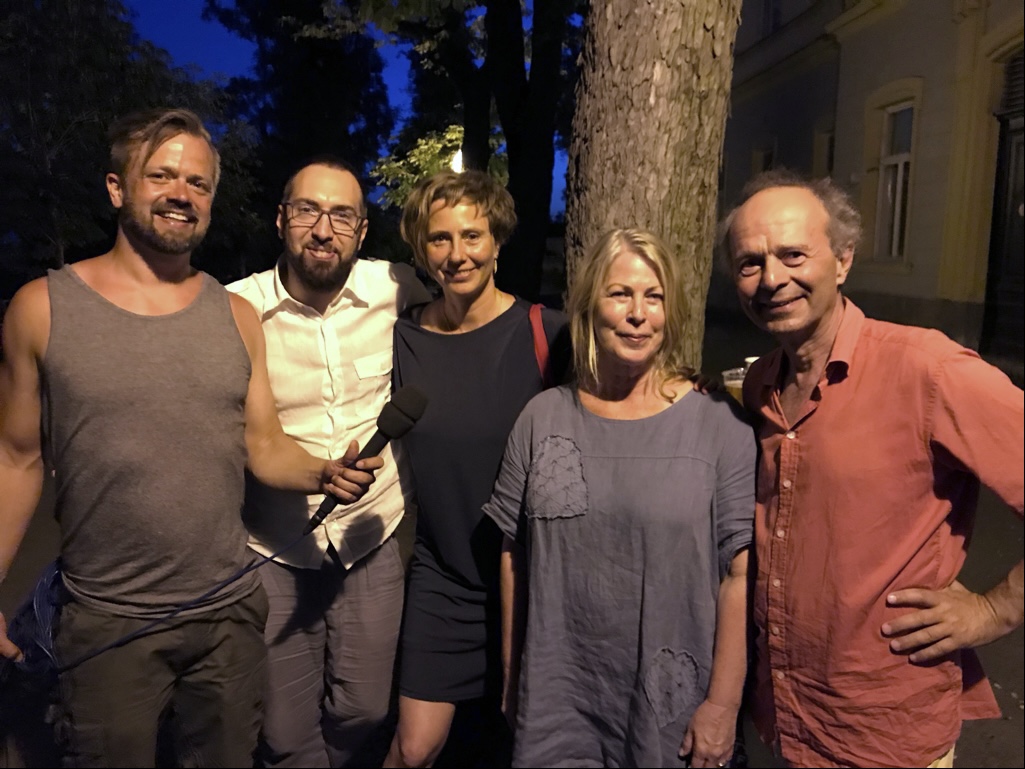The call to make academic research more socially relevant has become a commonplace. But what does it mean to for academic research to benefit urban activism? What is to be done when the logics of academia obstruct deeper activist engagements?
This roundtable engages these challenges with four seasoned activist-scholars. Kate and Uli work in academia using different strategies to relate their job with activist engagements. Tomislav and Richard both have a background in urban research and have entered local politics. Tomislav recently entered Zagreb city council as a member of the opposition and Richard became part of the Zurich city government. Discussion ensues among the participants about the prospects of straddling the requirements of research and action.
A controversial and collegial late-night open-air wine-panel in the context of the INURA (International Network for Urban Research and Action) conference in Zagreb in July 2019.
Participants:

Richard Wolff
Richard is an urban researcher and activist from Switzerland Co-founder of the International Network for Urban Research and Action INURA in 1991. PhD at ETH Zurich in Participatory urban planning, the example of the King’s Cross Railway Lands Development in London, 1994 – 1999. Lecturing positions in the US and Switzerland. Since 2013, elected member of the City Government of Zurich, Head of the Department of Civil Engineering and Waste Management.

Kate Shaw
Kate is a critical urban geographer at the University of Melbourne, interested mainly in the cultures of cities and the political-economic and social processes that shape them. She is currently working on a book titled “The squander and salvage of urban waterfronts,” which looks at the redevelopment of the deindustrialised docks and harbours in rich countries, and the wasted opportunities. With Libby Porter she co-edited “Whose Urban Renaissance? An international comparison of urban regeneration strategies.”

Dr. Ulrike Hamann
Dr. Hamann is a postdoctoral researcher at the Berlin Institute for empirical integration and migration research (BIM) at Humboldt University in Berlin. She works at the department of Diversity and Social Conflict. She is also an urban activist and co-founder of the neighbourhood initiative Kotti & Co, has been active in several Berlin urban initiatives and networks such as the Rent Referendum (Mietenvolksentscheid), The Urbanize Festival, the Dossier Group and others. Her main interests are at the intersection of housing and migration, racism, solidarity and neighbourhood. She has published on the welcome movement for refugees in Germany, on the housing situation of refugees and is currently leading two research projects on urban settings and the arrival of refugees.

Tomislav Tomašević
Tomislav holds a BA and MA in political science from the University of Zagreb and MPhil in environment, society and development from the University of Cambridge. Tomislav’s research interests are in issues of sustainability and urban commons. He currently works as a Program Director at the Institute for Political Ecology, a newly established think-tank in Croatia, and is now a member of city council of Zagreb under the platform “Zagreb je NAŠ!”

